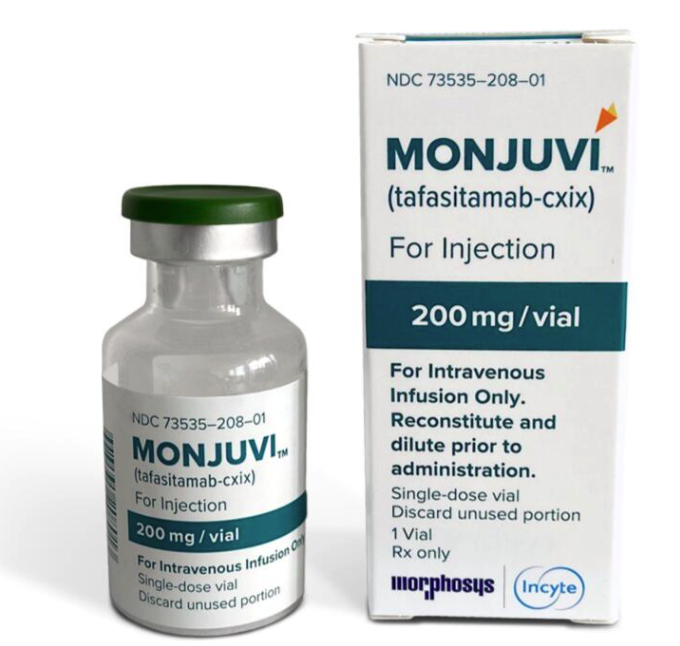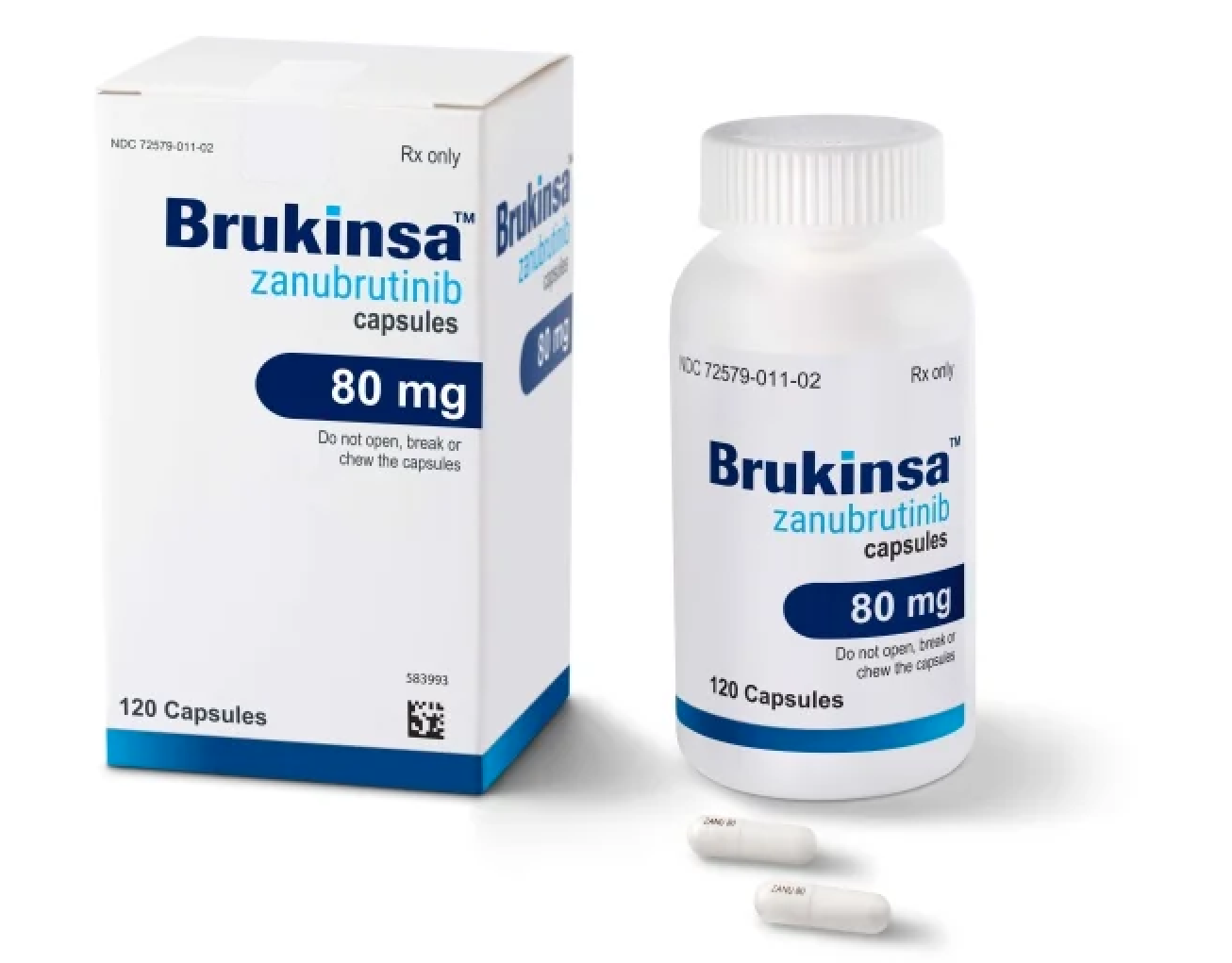Monjuvi (tafasitamab-cxix) vs Brukinsa (zanubrutinib)
Monjuvi (tafasitamab-cxix) vs Brukinsa (zanubrutinib)
Monjuvi (tafasitamab-cxix) is a CD19-directed cytolytic antibody indicated for the treatment of adult patients with relapsed or refractory diffuse large B-cell lymphoma (DLBCL), to be used in combination with lenalidomide, particularly in patients who are not eligible for autologous stem cell transplant. Brukinsa (zanubrutinib) is a Bruton's tyrosine kinase (BTK) inhibitor used for the treatment of adult patients with mantle cell lymphoma (MCL) who have received at least one prior therapy, and it is also being explored for use in other B-cell malignancies. When deciding between Monjuvi and Brukinsa, it is crucial to consider the specific type of lymphoma being treated, as well as the patient's previous treatments and overall health status, since each medication is targeted towards different indications and has distinct mechanisms of action.
Difference between Monjuvi and Brukinsa
| Metric | Monjuvi (tafasitamab-cxix) | Brukinsa (zanubrutinib) |
|---|---|---|
| Generic name | Tafasitamab-cxix | Zanubrutinib |
| Indications | Relapsed or refractory diffuse large B-cell lymphoma | Mantle cell lymphoma, Waldenström's macroglobulinemia, and chronic lymphocytic leukemia |
| Mechanism of action | CD19-directed cytolytic antibody | Bruton's tyrosine kinase (BTK) inhibitor |
| Brand names | Monjuvi | Brukinsa |
| Administrative route | Intravenous | Oral |
| Side effects | Fatigue, fever, diarrhea, respiratory tract infections, among others | Neutropenia, thrombocytopenia, anemia, hemorrhage, among others |
| Contraindications | Known hypersensitivity to tafasitamab-cxix or any of its excipients | Known hypersensitivity to zanubrutinib or any of its excipients |
| Drug class | Monoclonal antibody | BTK inhibitor |
| Manufacturer | MorphoSys | BeiGene |
Efficacy
Efficacy of Monjuvi (tafasitamab-cxix) in Treating Lymphoma
Monjuvi (tafasitamab-cxix) is a CD19-directed cytolytic antibody indicated for the treatment of adult patients with relapsed or refractory diffuse large B-cell lymphoma (DLBCL). This is a type of non-Hodgkin lymphoma (NHL) that is one of the most common subtypes. Monjuvi is used in combination with lenalidomide for patients who are not eligible for autologous stem cell transplant (ASCT). The efficacy of Monjuvi was evaluated in a multicenter, single-arm trial known as L-MIND. In this study, patients treated with Monjuvi in combination with lenalidomide showed a meaningful overall response rate (ORR), with a significant proportion of patients achieving complete response (CR). This indicates that Monjuvi can be an effective treatment option for this patient population.
Efficacy of Brukinsa (zanubrutinib) in Treating Lymphoma
Brukinsa (zanubrutinib) is a Bruton's tyrosine kinase (BTK) inhibitor used for the treatment of mantle cell lymphoma (MCL) in adult patients who have received at least one prior therapy. MCL is a rare and aggressive form of NHL. The efficacy of Brukinsa was demonstrated in clinical trials, which included a single-arm trial that showed a high ORR with a durable response among patients. Furthermore, Brukinsa has been studied in other B-cell malignancies, including Waldenström's macroglobulinemia, where it has shown promising results. The drug's ability to inhibit BTK leads to a decrease in the survival and proliferation of malignant B cells, providing a targeted approach in the treatment of lymphoma.
Comparative Efficacy and Considerations
While both Monjuvi and Brukinsa are used in the treatment of different types of lymphoma, their mechanisms of action and indications vary. Monjuvi targets the CD19 antigen on B cells and is specifically indicated for DLBCL, particularly in combination with lenalidomide. Brukinsa, on the other hand, is a BTK inhibitor with a broader indication for B-cell malignancies, including MCL. Both medications have shown efficacy in their respective indications and represent advancements in targeted therapies for lymphoma. However, the choice of therapy would depend on the specific type of lymphoma, the patient's prior treatment history, and the overall treatment goals.
Conclusion
In conclusion, Monjuvi and Brukinsa have expanded the treatment options for patients with certain types of lymphoma. Monjuvi's efficacy in combination with lenalidomide for the treatment of relapsed or refractory DLBCL and Brukinsa's efficacy as a second-line treatment for MCL demonstrate the progress in developing targeted therapies that can improve outcomes for patients with these challenging conditions. Continued research and clinical trials are essential to further understand the full potential and optimal use of these therapies in the management of lymphoma.
Regulatory Agency Approvals
Monjuvi
-
Food and Drug Administration (FDA), USA

Brukinsa
-
European Medical Agency (EMA), European Union

-
Food and Drug Administration (FDA), USA

Access Monjuvi or Brukinsa today
If Monjuvi or Brukinsa are not approved or available in your country (e.g. due to supply issues), you can access them via Everyone.org.
How it works

Make an enquiry
Choose the medicine you want to buy, answer a couple of questions, and upload your prescription to speed things up. We’ll get back to you within 24 hours.


Make an enquiry
Choose the medicine you want to buy, answer a couple of questions, and upload your prescription to speed things up. We’ll get back to you within 24 hours.


Breeze through the paperwork
We'll guide you through the required documents for importing unapproved medicine, ensuring you have all the necessary information.


Get a personalized quote
We’ll prepare a quote for you, including medicine costs and any shipping, administrative, or import fees that may apply.


Receive your medicine
Accept the quote and we’ll handle the rest - sourcing and safely delivering your medicine.

Some text on this page has been automatically generated. Speak to your physician before you start a new treatment or medication.
Let's talk
If you have any questions, call us or send us a message through WhatsApp or email:
Contact us




